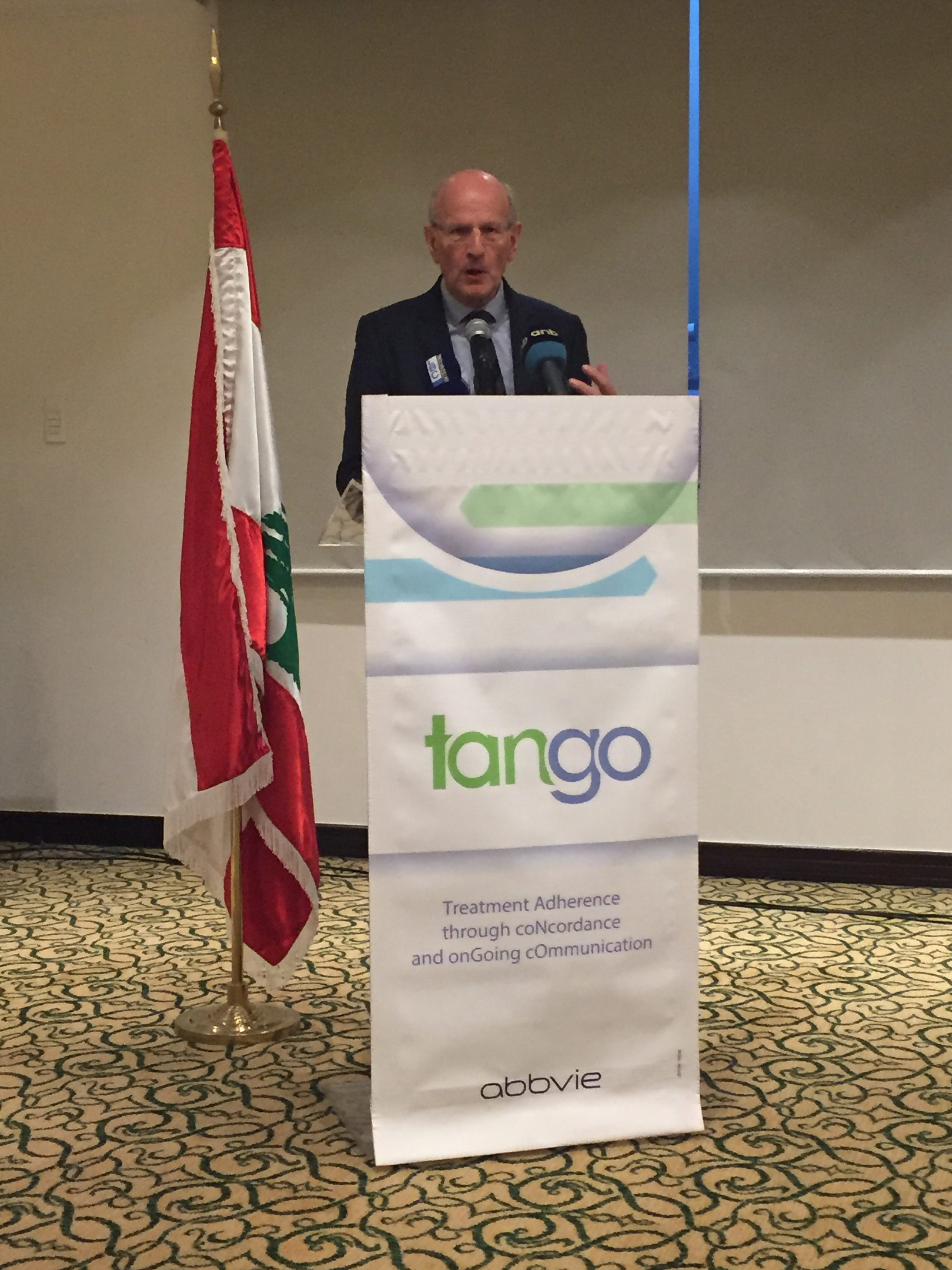Professor Weinman from the UK speaks about the implications of non-adherence to treatment on patients’ clinical outcomes and health care costs.
BEIRUT, January 27, 2017 – AbbVie (NYSE: ABBV), a global biopharmaceutical company, held today a media roundtable discussion to launch TANGO, a new initiative on adherence, in the presence of Professor Weinman from the UK, Professor Raymond Sayegh, the President of the Lebanese Order of Physicians and Dr. Jad Okais, the head of the national adherence working group.
TANGO stands for Treatment Adherence through Concordance and ongoing Communication and is a national initiative sponsored by AbbVie and aiming at educating physicians on the issue of adherence and providing them with practical tools to assess and manage adherence in local practice.
The ability for patients with chronic diseases to adhere to their prescribed treatment impacts significantly their clinical outcomes and overall health care costs.
Medication adherence is defined by the World Health Organization as “the degree to which the person’s behavior corresponds with the agreed recommendations from a health care provider.”1
Though the terms adherence and compliance are synonymously used, adherence differs from compliance. While compliance implies patient obedience to the physician’s authority,2-5 adherence signifies that the patient and physician collaborate to improve the patient’s health by integrating the physician’s medical opinion and the patient’s lifestyle, values and preferences for care.6-8
Adherence to therapy is a primary determinant of treatment success. Failure to adhere is a serious problem, which not only affects the patient but also the health care system. Medication non-adherence in patients leads to substantial worsening of disease, death and increased health care costs.
Hence, helping patients take their medicine appropriately would be crucial to avoid higher risk of severe relapses, antibiotic resistance, and preventable hospitalizations.
A variety of factors are likely to affect adherence. Barriers to the effective use of medicines specifically include poor provider-patient communication, inadequate knowledge about a drug and its use, not being convinced of the need for treatment, fear of adverse effects of the drug, long term drug regimens, complex regimens that require numerous medications with varying dosing schedules16 cost and access barriers.10,11,12
Health care professionals such as physicians, pharmacists and nurses play a significant role in improving patient medication adherence9.
Dr. Nibal Dahaba, AbbVie Regional Public Affairs Director Middle East, Africa and Pakistan, welcomed the press members and highlighted that medication non-adherence is an important public health concern. “The consequence of non-adherence is waste of medication, disease progression, reduced functional abilities, a lower quality of life and increased use of medical resources”, he said.
Dr. Dahaba reiterated the company’s commitment to partner with medical societies to address the issue of medication non-adherence in order to improve patients’ treatment outcomes and quality of life. By supporting the TANGO initiative, AbbVie aims at elevating the standards of care in the management of patients with chronic diseases.
Addressing the medical crowd, Professor John Weinman shared suitable and practical techniques to overcome these barriers in order to improve the ability of patients with chronic diseases to adhere to treatments and optimize their clinical outcomes. He highlighted specifically the importance of an improved communication between physicians and patients in order to build trust between both parties and consequently improve patients’ acceptance and adherence.

